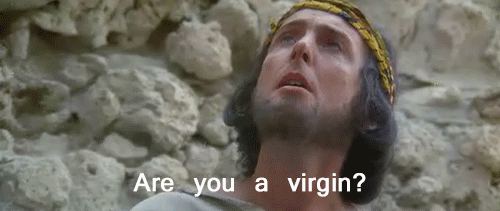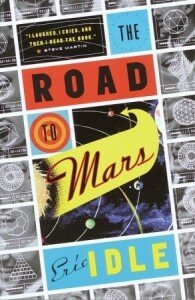
So, Seth McFarlane opened the 85th Oscar ceremony with a robust rendition of “We Saw Your Boobs”, and successfully sensationalised the event for a reason other than who managed to bag a prize position on Vanity Fair’s “Best-dressed at the Oscars” list. People now had something else to talk about apart from Meryl Streep’s gazillionth nomination, and how the jury should really be a little more sympathetic to poor ole Leonardo.
They were busy getting polarized over the content of McFarlane’s repertoire of jokes. Was he being deliberately sexist when he poked fun at actresses (frequently) getting nude on the screen? Or was he taking unforgivable liberties in the name of satire?
In the same vein were Tina Fey and Amy Poehler being misandrist, while hosting the Golden Globes, when they joked about Kathryn Bigelow being somewhat of an authority on torture on account of having “spent three years married to James Cameron”?
On that note, there was also Daniel Tosh, the stand-up comedian who made a rape joke and incurred public wrath by the bucketfuls.
Through this all, and indeed, throughout the history of comedy and comedians, one can discern a strain of recklessness, a certain penchant for poking sleeping lions, and a disposition towards provoking and drawing attention. In his book, ‘The Road to Mars’, Eric Idle – illustrious member of the legendary surreal comedy group Monty Python (Google/Youtube if you’re floundering. ASAP), consummate comedian and proud wearer of numerous enchanting drag costumes – would have you believe that the average comedian is a classic case of, to use fashionable language, the “attention whore”.
The book begins with a tirade against fame, that dubious siren song which makes people believe that they have a chance of living beyond death, that insidious corrupter of men and the “syphilis of the soul”, as Idle puts it more chastely. The novel is set in the future, sometime between the 24th and 25th centuries, when two stand-up comedians, Alex Mushcroft and Lewis Ashby, perform on intergalactic vaudeville circuits.
Carlton, their one-err…droid entourage, is a 4.5 Bowie, i.e., a humanoid modelled on David Bowie (not along the lines of the kimono-clad Ziggy Stardust, as the narrator clarifies, but on Bowie circa 1985, during his “Let’s Dance” phase). He also holds the distinction of being the author of “De Rerum Comoedia”, a path-breaking (albeit fictitious) thesis on comedy.
The narrator is Bill Reynolds, a “micropaleontologist”, who has stumbled upon Carlton’s thesis in the even more distant future. Through him, we get to know how the two comedians and their tinman get entangled in a series of events on their way to Mars, where they were hoping to make big money.
Idle, with characteristic Pythonesque flair, manages to squeeze serious intellectual fodder amidst scenarios involving droids in drag, extra-terrestrial copulation, sugar daddies in silken robes and spontaneously impregnable (literally) explosive bugs (yeah, the last bit has to be read firsthand to be believed). At certain points in the narrative – for instance, when Carlton, “tintellectual” extraordinaire, is presenting his Theorem of Comedy – you wonder if the author’s actually taking the mickey out of generations of philosophers, if he’s pulling the rug from under the feet of his own scarily contemplative robot with a gleeful falsetto cackle and going “get a life, dweebs!” in his best Julia Child impersonation.
But then, so is the predicament of comedians. One must always go twice through their comments, looking for hidden meanings, innuendoes and sarcastic jibes that might have stayed undetected during the initial mental scanning. Thrice, if they, like members of Monty Python, are in the habit of making slightly more oblique jokes. Reading The Road to Mars, though, was like eating a voluptuous French meal, complete with sixty courses, gallons of Kir Royale, and the occasional delectable frog leg.
Idle, through Carlton, propositions that almost all comedians can be classified into two types – the “White Face”, and the “Red Nose”. It is the classic pairing of a short goofy oaf with a taller uptight stiff. The White Face is the long-suffering partner to a dopey force of nature whose standard thought on being confronted with a pie is “can I fit the whole of it down my pants?” Think Laurel and Hardy, think Rowan Atkinson as the stick-up-his-arse Captain Blackadder and Atkinson again as can’t-find-his-nose-with-a-compass Mr. Bean. And as an example outside comedy, think Sherlock Holmes and Doctor Watson.
It is an impressive insight into the mind of a comedian – this crippling need to stay in control of his/her audience’s response, while at the same time, giving the appearance of being uninhibited themselves. While the White Face takes care of the first part by giving off vibes of innocent pomposity and dignity, the Red Nose goes around ruffling feathers and poking what should be left unstirred.
It is similar to Coprolalia, a nervous disorder where the afflicted individual makes obscene gestures involuntarily, and has no control over his/her tendency to say the inappropriate things. We can hypothesise that a comedian’s lot is hardly better than that of a patient with Coprolalia, and that the standard humorist is almost incapable of not being offensive. It is a fancy theory, but hey, if a robot can spin wool on a philosophical yarn…
Some say that comedy is supposed to “afflict the comfortable and comfort the afflicted” (to paraphrase a quote popularised by H.L. Mencken). Others maintain that comedy, in all its mirthful levity, is what keeps mankind from giving into the gravity of its miserable existence and collapsing in on itself. Others are too busy banning free speech to form original opinions of their own.
I guess, it all boils down to Voltaire’s legendary epigram – “God is a comedian throwing a pie in the face of a world which wants a gluten-free coconut pastry”.
Or some claptrap like that.









